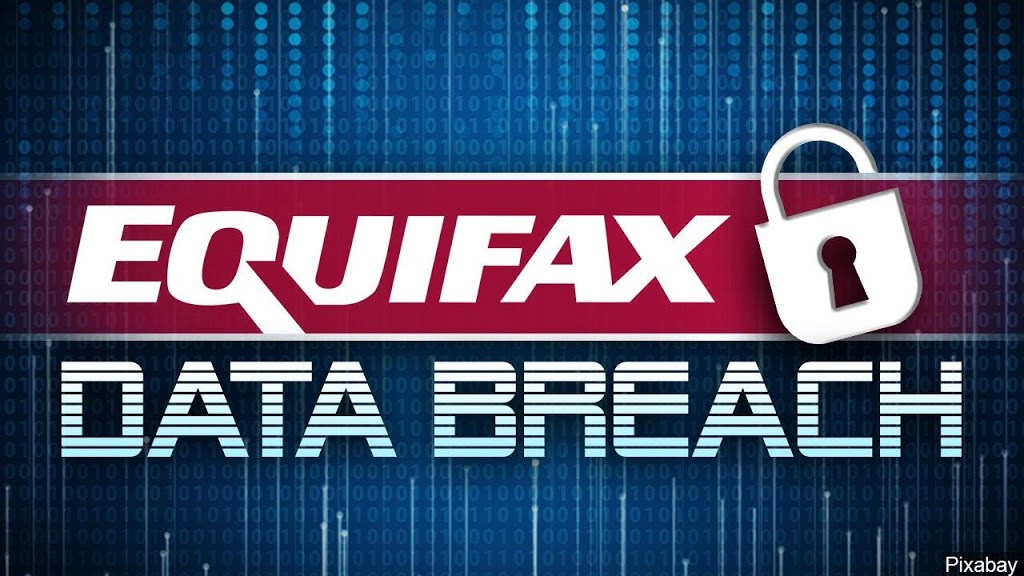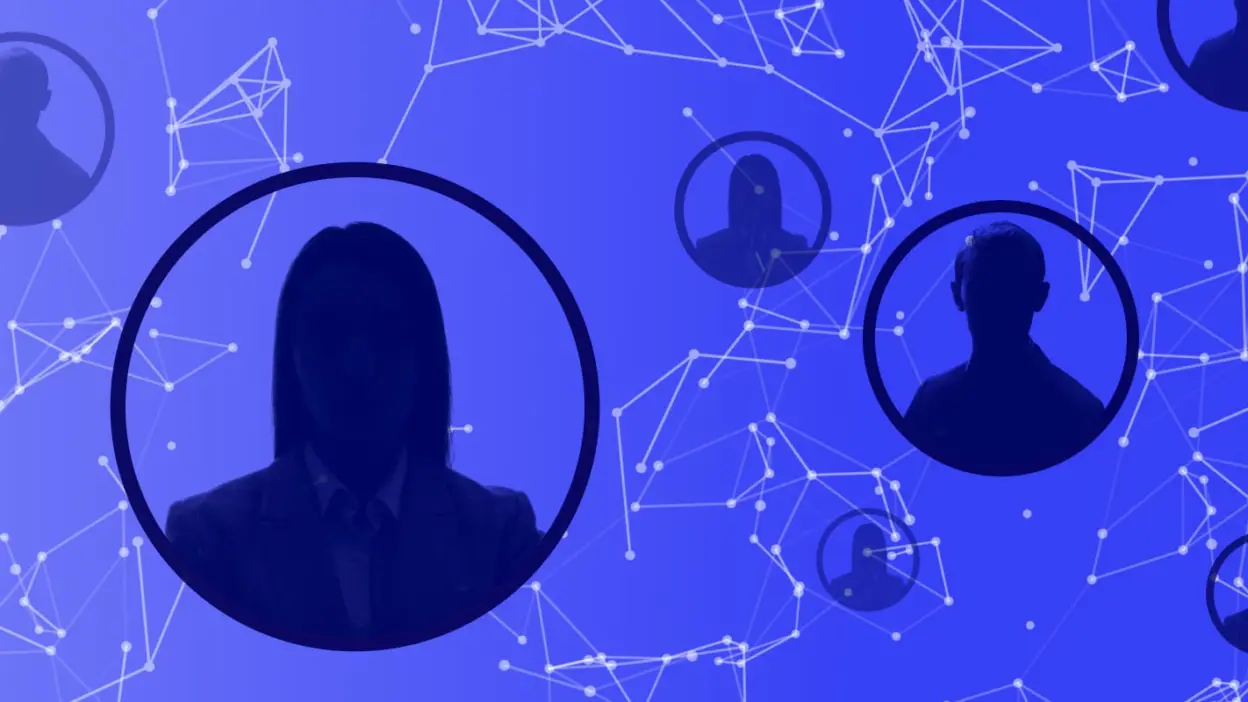In the digital age, where personal information is increasingly becoming a valuable commodity, the need for Decentralized Identity (DID) has never been more pressing
Traditional identity management systems are often centralized, making them vulnerable to security breaches, unauthorized access, and misuse of personal data. With the rise of blockchain technology, Decentralized Identity offers a promising solution to these issues, providing users with more control over their personal information and reducing the risks associated with centralized systems.
As privacy and data security concerns grow, Decentralized Identity is poised to reshape how we think about online identity management. We’ll look into this deeply in this article.
- 1 The Problem with Centralized Identity Systems
- 2 The Core Concepts of Decentralized Identity
- 3 The Privacy and Security Benefits of Decentralized Identity
- 4 The Technological Foundations of Decentralized Identity
- 5 Real-World Applications of Decentralized Identity
- 6 The Challenges and Future of Decentralized Identity
- 7 Conclusion
The Problem with Centralized Identity Systems
Although they have long been the pillar of online authentication, centralized identity management systems have major shortcomings.
These systems store and validate user data using central authorities—such as banks or social media sites. But their centralized character makes them especially easy targets for hackers.
Millions of personal details have been exposed from data breaches at major corporations, therefore facilitating identity theft, fraud, and financial loss.
Furthermore, centralized systems sometimes dictate what information is shared and used, therefore depriving consumers of much influence over their own data.
Why DID is the Future
By means of a user-centric strategy whereby users have complete control over their personal data, Decentralized Identity differs. DID systems eradicate the requirement for a central authority to handle identities by using blockchain technology.
Rather, users keep control of their data so they may share just the information required for particular interactions. Decentralized Identity is a new idea in the fight against data breaches and privacy violations since this improved privacy combined with the security aspects of blockchain makes.
The possibility for a safer, more privacy-conscious digital world rises as more companies and people use these distributed solutions.
The Core Concepts of Decentralized Identity
What is Decentralized Identity (DID)?
Decentralized Identity (DID) refers to a new model of digital identity that puts individuals in control of their own personal information.
In the context of blockchain, DID allows users to manage, verify, and authenticate their identity without relying on centralized authorities such as governments, banks, or large corporations.
Unlike traditional identity management systems, where personal data is stored and controlled by a central entity, Decentralized Identity enables the creation of identities on decentralized networks, typically leveraging blockchain technology for secure and tamper-proof record-keeping.
How DID Differs from Traditional Identity Management Systems
In traditional, centralized identity systems, personal data is stored in a central database, which is often vulnerable to data breaches, hacks, and unauthorized access.
Centralized entities act as intermediaries, controlling who can access and verify your information. In contrast, Decentralized Identity empowers individuals by eliminating intermediaries and giving users full ownership over their identity.
With DID, each person can control their credentials, choose who can access them, and even revoke access if needed, making it a more secure and privacy-conscious alternative to traditional systems.
Key Components of DID
The Decentralized Identity framework comprises several key components that ensure both security and privacy:
- Verifiable Credentials: These are digital representations of information (such as a driver’s license or a university degree) that can be verified by anyone with access to the blockchain.
- Decentralized Identifiers (DIDs): These are unique identifiers that are not tied to a central authority. DIDs allow users to establish a self-sovereign identity on the blockchain without the need for a centralized registry.
- Blockchain’s Role: Blockchain technology underpins DIDs, ensuring that all records are immutable, secure, and verifiable. The decentralized nature of the blockchain removes the need for a central authority to validate or store personal data.
How DIDs Work
A Decentralized Identity operates through a process involving the issuance, verification, and validation of credentials on a blockchain. Here’s a step-by-step breakdown of how it works:
- Issuance: A trusted entity (e.g., a university or government) issues a credential, such as a digital certificate or identity card, which is stored on the user’s DID.
- Verification: When a user needs to authenticate their identity, they can provide a verifiable credential, allowing others to check the validity of the credential on the blockchain without needing access to centralized databases.
- Validation: Anyone who needs to verify the authenticity of a user’s credentials can do so by referencing the blockchain, ensuring that the information has not been tampered with and that the user owns their DID.
Real-life Examples
Several projects are already working on Decentralized Identity systems that demonstrate the practical application of DIDs.
For instance, Sovrin is a global decentralized identity network that uses blockchain to provide self-sovereign identities.

Similarly, uPort offers a platform that allows individuals to create and manage their own decentralized identities, empowering users with greater privacy and control over their personal data.
These examples showcase the potential of Decentralized Identity to redefine digital identity management in a more secure, user-centric way.
The Privacy and Security Benefits of Decentralized Identity
Enhanced Privacy
One of the most significant advantages of Decentralized Identity is its ability to enhance privacy. In traditional identity management systems, personal data is stored in centralized databases, making it a prime target for hackers.
With Decentralized Identity, cryptographic techniques ensure that personal data remains private and secure.
Each credential and piece of personal information is encrypted, ensuring that only authorized parties can access it.
Additionally, Decentralized Identity minimizes the need to share unnecessary personal information.
For instance, when making a transaction, users can prove their identity without revealing excessive details, such as their full address or birthdate.
Reduced Risk of Identity Theft
Another key benefit of Decentralized Identity is its ability to significantly reduce the risk of identity theft.
In centralized systems, personal information is often stored in a single, vulnerable database, making it a prime target for cyberattacks.
Once breached, hackers can access large volumes of personal data, leading to identity theft, financial fraud, and other malicious activities.
In contrast, Decentralized Identity removes the need for centralized storage, with blockchain providing an immutable, tamper-proof ledger that makes unauthorized access much more difficult.
This means that even if a user’s credentials are compromised, they cannot be easily misused without the user’s consent.
Case Studies of Security Breaches in Centralized Systems
Security breaches in centralized systems have become alarmingly common. For instance, the 2017 Equifax breach exposed the personal information of over 147 million Americans, including Social Security numbers, addresses, and birthdates.

Similarly, in 2018, Facebook faced a massive breach that exposed the personal data of nearly 50 million users.
These breaches highlight the vulnerabilities of centralized systems and the pressing need for alternatives like Decentralized Identity that prioritize privacy and security.
By shifting control of personal data to users themselves, Decentralized Identity offers a more robust and secure solution to identity management.
User Control and Consent
One of the fundamental principles of Decentralized Identity is giving users complete control over their identity and data.
Unlike centralized systems, where data is often stored and controlled by third parties, DID ensures that users can decide what information they want to share, and with whom, at any given time.
This selective sharing of data ensures that individuals are not forced to disclose personal details unless necessary.
Furthermore, Decentralized Identity emphasizes the importance of consent management, allowing users to grant or revoke access to their information at will.
This transparency and control empower users to maintain ownership of their identity and ensure that their personal data remains secure.
The Technological Foundations of Decentralized Identity
Blockchain as the Backbone
Blockchain technology is fundamental in Decentralized identification (DID) and helps to guarantee the integrity and security of identification data.
Blockchain contains distributed identifiers (DIDs) and verifiable credentials on an unchangeable, open ledger.
Blockchain’s distributed character guarantees that once data is entered, it cannot be changed without network consensus, unlike conventional centralized databases that are prone to manipulation or hacking.
Since this unchangeable characteristic of blockchain ensures that the identification data stays tamper-proof, it is the perfect tool for securely managing Decentralized identification information.
By doing away with a central authority, blockchain also guarantees trust in decentralized identity systems.
In conventional forms of identity, people believe in centralized organizations like companies or governments.
But with Decentralized Identity, consensus systems validate and authenticate identity data, therefore distributing trust over the blockchain network.
By means of a more durable and transparent identity ecosystem free from the weaknesses of a single point of failure, this distributed method creates.
Blockchain-based systems’ dependability comes from their capacity to run free from any one centralized entity.
Interoperability and Standards
Decentralized Identity has to be easily used across several platforms and services if it is to be adopted generally.
Industry standards include W3C Verifiable Credentials and DID Method Specifications help to make this achievable.
The W3C Verifiable Credentials standard provides a structure for securely and privacy-preserving digital credential issuing, verification, and validation.
Likewise, DID Method Specifications specify guidelines for generating, updating, and fixing DIDs on many blockchain systems.
These criteria help Decentralized Identity to be compatible with several blockchain ecosystems, so ensuring that identities may be used regularly across platforms and services.
Decentralized Identity’s success depends on its interoperability since it guarantees that users may manage their identity globally free from reliance on a single supplier.
Following these open standards will help consumers construct a single digital identity that fits several distributed apps (dApps), social media, financial services, and more.
Along with improving user convenience, this adaptability helps distributed technologies to be widely adopted.
Smart Contracts and DID
By automating identity verification and related transactions, smart contracts improve the capability of Decentralized Identity even more.
Operating on blockchain systems, smart contracts are self-executing contracts with pre-defined terms.
Within the framework of Decentralized Identity, smart contracts allow a user’s credentials or identity attributes to be automatically validated depending on particular criteria.
A smart contract might be activated, for instance, when a user provides a valid credential proving their age or membership status, therefore allowing immediate access to a service free from third party involvement.
Within Decentralized Identity systems, smart contracts also simplify the management of consent and rights.
Smart contracts can enforce terms of data sharing based on user choices, therefore substituting for middlemen handling consent requests.
This lets consumers decide when and how their personal information is released, therefore safeguarding their data from public view.
Smart contracts are essentially a great tool that helps to automate identity-related procedures, so improving the efficiency and usability of Decentralized Identity systems.
Real-World Applications of Decentralized Identity
Financial Services and Banking
Particularly in areas like Know Your Customer (KYC) compliance, DECentralized Identity (DID) has the ability to transform the banking industry.
KYC procedures historically call for customers to provide sensitive personal information to several financial organizations, therefore raising their risk of identity theft and data breaches.
Through blockchain storage of verifiable credentials, Decentralized Identity lets people keep control over their identity.
After that, banks and other financial organizations can confirm a person’s identification without directly access to or storage of their personal information. Along with improving privacy, this lessens the administrative load and related expenses.
Already looking at Decentralized Identity for safe digital identity management and fraud prevention are some banks and financial organizations.
Using blockchain’s openness and immutability will help financial organizations guarantee that identities are real and tamper-proof.
Consequently, the more safe approach for managing consumer information results lowers the possibility of identity theft and fraud.
Decentralized Identity promises to change how financial institutions handle identity and compliance as it develops, therefore opening the path for a more safe and effective financial environment.
Healthcare and Patient Privacy
Decentralized Identity provides a way for safely controlling patient records and guaranteeing privacy in the medical field.
Patients with DID can manage who has access to their medical records, therefore empowering them to share just the required information with their doctors.
Sensitive health data is guaranteed not to be kept in centralized systems susceptible to cyber-attacks or illegal access by this distributed approach.
Rather, the patient keeps control of their securely kept blockchain-based data.
Already showing value in telemedicine and health information management is Decentralized Identity. While ensuring their personal data stays private, patients can get medical treatments remotely using their confirmed identification.
This makes telemedicine more effective since it removes the need for laborious documentation and hand-offering of proof.
Moreover, DID guarantees that patient privacy is given top priority when healthcare organizations migrate toward digital solutions, therefore fostering confidence and encouraging general acceptance of digital healthcare products.
Government and Civic Services
Particularly in improving security and lowering fraud, decentralised identity can significantly influence government services.
A government-backed DID system might provide safe access to public services, therefore guaranteeing that only confirmed people may gain from them.
This covers everything from social security to unemployment benefits, therefore guaranteeing that only those qualified are getting help.
Moreover, Decentralized Identity offers a necessary basis for open and safe voting methods.
Voters may safely cast their ballots online by securely using verifiable credentials kept on the blockchain, therefore lowering the possible fraud risk and improving the availability of democratic processes.
Governments looking at Decentralized Identity systems can simplify procedures, enhance public service delivery, and lower the fraud possibilities.
Blockchain helps to build trust in the system by which citizens may be sure their personal information is safeguarded and they are getting the services they are due.
Supply Chain and IoT
Decentralized Identity offers a verified digital identity for items and devices, therefore guaranteeing trust and security in the supply chain and Internet of Things (IoT) sectors.
Using DIDs, for example, helps firms validate the origin and authenticity of products, therefore lowering counterfeit goods and enhancing supply chain transparency generally.
Every stage of a product’s path from the manufacturer to the consumer may be confirmed, therefore guaranteeing that all those involved in the supply chain are following guidelines and laws.
Decentralized Identity can assist IoT devices to guarantee their safe identification and authentication inside a network.
Protection against cyber-attacks depends on this since illegal devices cannot be let to enter the network.
Decentralized Identity helps manufacturers, suppliers, and consumers to have faith that the goods and devices they are handling are real and safe, therefore strengthening general confidence in the digital economy.
The Challenges and Future of Decentralized Identity
Challenges in Widespread Adoption
Although Decentralized Identity (DID) has great possibilities, its general acceptance is hampered in various ways. Scalability is a main challenge.
Particularly public ones, blockchain networks may find it difficult to manage high transaction volumes fast and effectively.
Decentralized Identity’s increasing acceptance calls for making sure these systems can scale to serve millions of users without compromising security or performance.
Obstacles that must be surmounted for DID to become popular are technological ones including the requirement for defined protocols and the growth of user-friendly tools.
Still another difficulty is combining Decentralized Identity with legacy systems.
Many companies still depend on conventional centralized identity management systems, hence switching to a distributed model would need large expenditures in new infrastructure and retraining personnel.
This change may be gradual since businesses have to strike a compromise between stability of current systems and innovation.
Decentralized Identity also confronts legal and regulatory problems, especially with relation to data privacy rules as the California Consumer Privacy Act (CCPA) in the United States and the General Data Protection Regulation (GDPR) in Europe.

Although these rules are meant to safeguard personal information, they might not fit exactly the distributed character of DID.
Problems including data portability, data sovereignty, and the right to be forgotten have to be solved if DID is to comply with current legal systems.
Future Trends in DID
Looking ahead, various developing technologies might either complement or improve Decentralized Identity.
Improving the usefulness and efficiency of DID systems could depend much on artificial intelligence (AI).
More quickly verifying identification credentials, fraud detection, or even real-time prediction of possible security flaws using artificial intelligence could help to
Decentralized Identity is even more user-friendly as artificial intelligence develops since it might assist to automate identity management systems.
Though still in its early years, quantum computing may also have a significant effect on decentralized identity.
Although they could be used to create more sophisticated encryption methods, therefore enhancing the security of DID systems, quantum computers have the ability to destroy present cryptographic systems.
Quantum-resistant algorithms might be included into blockchain systems by 2030 to protect the integrity and anonymity of distributed identities, therefore guaranteeing their long-term survival in a technologically fast changing environment.
Regarding the worldwide acceptance of Decentralized Identity, by 2030 a sizable fraction of the population is expected to use blockchain-based identity systems for anything from authenticating personal information in online transactions to accessing public services.
Driving this transformation will be mostly dependent on governments and businesses; projects like digital ID systems are now somewhat common worldwide.
The Role of Governments and Enterprises
Future success of Decentralized Identity depends mostly on governments and businesses. Global control will have to change to meet the special difficulties presented by distributed systems including problems with jurisdiction, data sovereignty, and cross-border identity verification.
Early adopters of Decentralized Identity could set themselves as leaders in the worldwide digital economy as businesses and people gain from more safe and effective identity management solutions.
Estonia’s e-residency scheme is among the most prominent instances of government-led Decentralized Identity acceptance.
For years, Estonia has embraced digital identification solutions, letting anyone from all over register as e-residents, use government services, and even launch enterprises remotely.
This forward-looking project shows how governments may use Decentralized Identity to boost economic development, security, and citizen services.
Furthermore crucial for the acceptance of Decentralized Identity will be businesses. Many may look to DID as a workable answer as businesses want to improve customer experience, lower fraud, and simplify their operations.
Blockchain-based platforms for anything from finance to healthcare will provide companies fresh chances to use Decentralized Identity for safe and quick transactions.
Adoption of Decentralized Identity will ultimately need for cooperation amongst governments, businesses, and technological companies.
Correct regulatory frameworks, technology developments, and corporate adoption will help DID rethink identity management and transform interactions between people and businesses in the digital environment.
Conclusion
The development of Decentralized Identity (DID) marks a radical change in our handling of and defense against personal data. The main advantages of DID are obvious in a world run by blockchains: anonymity, security, and control.
DID reduces the dangers of data breaches, fraud, and illegal access by allowing people to manage their own identity free from depending on centralized agencies.
Its use of cryptographic methods guarantees that private data stays safe, and its user-centric approach encourages more privacy by lowering the need to distribute pointless personal information.
From government services and supply chains to finance and healthcare, Decentralized Identity has the ability to transform several sectors as we have discussed throughout this post.
Given privacy issues at an all-time high in today’s data-driven environment, the technology’s ability to offer verifiable credentials, flawless interoperability, and better security makes it the perfect fit.



